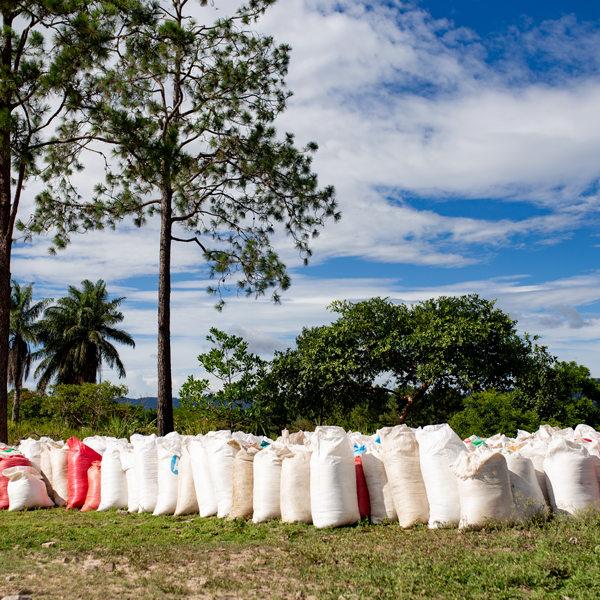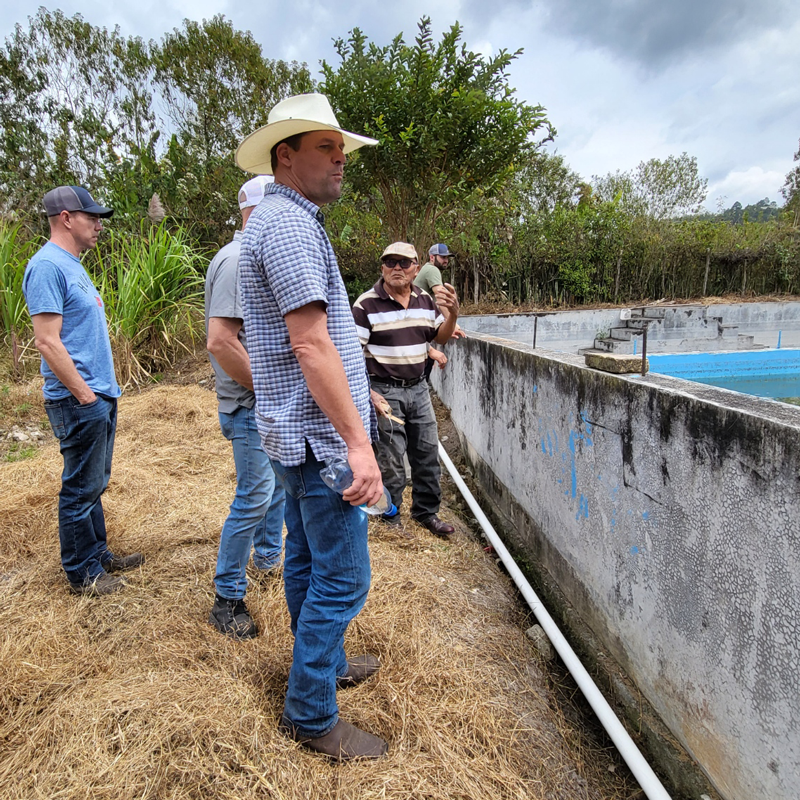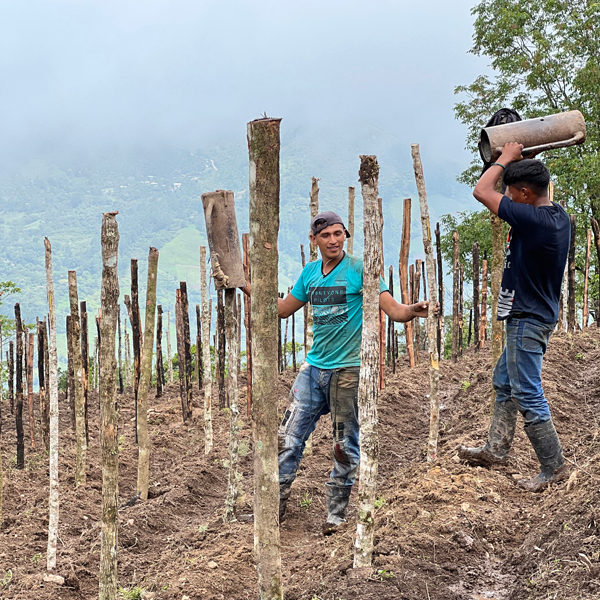Our Task Forces
Background
Since the inception of 99 Farmers, we have spent considerable time and resources in developing strategies that will help us identify and implement the most effective programming for the most amount of people. In 2020, we developed a comprehensive digital risk assessment tool that would help us gain a better understanding of the specific needs and opportunities of each farmer. As part of the farmer’s application process, our training staff visit the farmer and walk him through the assessment collecting hundreds of data points. The assessment is scored and will determine whether we believe our program will benefit them.
Water Capture
83% of our particpants do not capture rainwater


The Data
After the farmer is accepted in the 99 Farmers training program, the data collected is used to identify areas of the farmer’s operation where we can realize the most amount of improvement. Our training is designed to address three pain points: a lack of farm technical know-how, access to markets, and access to capital. The data collected help us develop individualized business strategies, as well as improve the overall quality of life.
Region Wide Solutions
Not only does the data help us in improving the operation of each individual farmer, but the data also gives us insight in challenges and opportunities across the six communities we are currently in.
Example:61% of the farmers in our program indicated to use mostly synthetic fertilizer, yet 100% had no precise knowledge or record of how much they applied per tree or acre, or any specific ratios or dilutions. With solids we could not get a more precise answer than “a handful.”
Observations like these allow us to adjust our training program, as well as look into finding region wide custom farming solutions. Would a crop spraying service/business be viable? A perfect question for a taskforce!
Task Forces
Before launching region wide solutions, a small group of selected farmers, Board members, and or stakeholders from along the 99 are invited to participate in one or two task force meetings. 99 Farmers staff present a theory, challenge, or opportunity to the taskforce who will then offer its guidance or recommendation to the Board of Directors.
Guiding Principles
As the task forces explore recommendations and solutions, it is critical to pursue best practices in our cross-cultural ministry context.
- Recommendations will be made prayerfully, with a deep appreciation of the lives and relationships that are at stake.
- Recommendations will not compete with local markets or services.
- Recommendations will model Christian stewardship of resources and people.
- Recommendations will not be purely ideological but should pursue real-world viability.
- Recommendations may be strategic or clever, yet never exploitive.

Summary of Task Force on Adoption of New Technologies
The Proposal/Theory
To increase exposure and adoption, 99 farmers will purchase several small gas-powered farm tools (trenchers, cultivators, augers, etc.) for use in our Module 7 demonstrations. Furthermore, as access to these types of tools is limited for most of the farmers in our program, we want to make these tools available for rent at an affordable rate.
- Demonstration will increase exposure
- Rental will provide access to modern technology
- Rental could significantly improve operational efficiency
- Small and low-risk investment for 99 Farmers
Task Force Obeservation 1
The introduction of modern farming technologies can significantly improve the agricultural operation of the Honduran farmer. While for most of the farmers in the 99 Farmers program the use of heavy machinery is impractical and cost prohibitive, we think the use of small gas-powered tools can help the farmer in the following areas:
- Reduction in labor costs
- Improvement of crop consistency
- Operational scaling
- Increase of harvest efficiency
- Mitigating logistical challenges
Task Force Obeservation 2
99 Farmers is uniquely and strategically positioned to encourage and facilitate the adoption of modern farming techniques and technologies. It does so through its 7-module training program and through the collaborative leverage of its region wide program participation as structured through 99 Farmers Advisory Council. We are encouraged by the development of the 7th module of Farm Innovation, designed to increase exposure to modern farming technologies, and see this as a perfect adoption starting point.
Task Force Obeservation 3
We recognize the intentionally limited scope of 99 Farmers’ programming and appreciate its core strategy of community ownership. Furthermore, the small organizational footprint will prove critical in adapting quickly and creatively to local challenges and opportunities.
With these 3 observations we provide the following recommendations:
Task Force Recommendation 1
What type of machinery/tools would be most beneficial for the purpose of increasing exposure and adoption?
Relatively small gas-powered hand or walk-behind tools such as a two-man auger or trencher would be most suitable for in-field demonstration. Hands-on training with these types of tools will offer enough initial exposure to the concept of modernizing farm practices.
- The smaller tools are inexpensive enough for 99 Farmers to invest in as a teaching or demonstration tool only.
- The smaller tools can be easily maintained and serviced locally.
- If the demonstrations do not show a measurable increase in adoption, tools are easily sold, further reducing the risk of investment.
Task Force Recommendation 2
What type of tools would be most useful for the crops and terrain farmed?
Increasing adoption through exposure will be maximized if the tools demonstrated are to improve the most common farm tasks. Furthermore, adopting crop specific tools or machinery is beyond the scope of 99 Farmers’ programming. The tools selected should focus on the area of land preparation and management. We recommend limiting the initial demonstration tools to augers, small cultivators, or trenchers. Recognizing the different soil types and soil conditions we acknowledge these tools would be useful to many, but not all.
Task Force Recommendation 3
What are the challenges in renting out tools in terms of maintenance, liability, and safety?
We appreciate the value of improving direct accessibility to modern technologies, however, due to the scope and vision of 99 Farmers, we do not recommend 99 Farmers staff deploying rental initiatives. The increased cost of operation and exposure to liability would add a significant organization burden to 99 Farmers. We much rather see local individuals or cooperatives launch for-profit initiatives that would provide custom farming solutions with community buy-in. Here we envision a unique opportunity for the 99 Farmers Advisory Council as catalyst rather than as operator.


